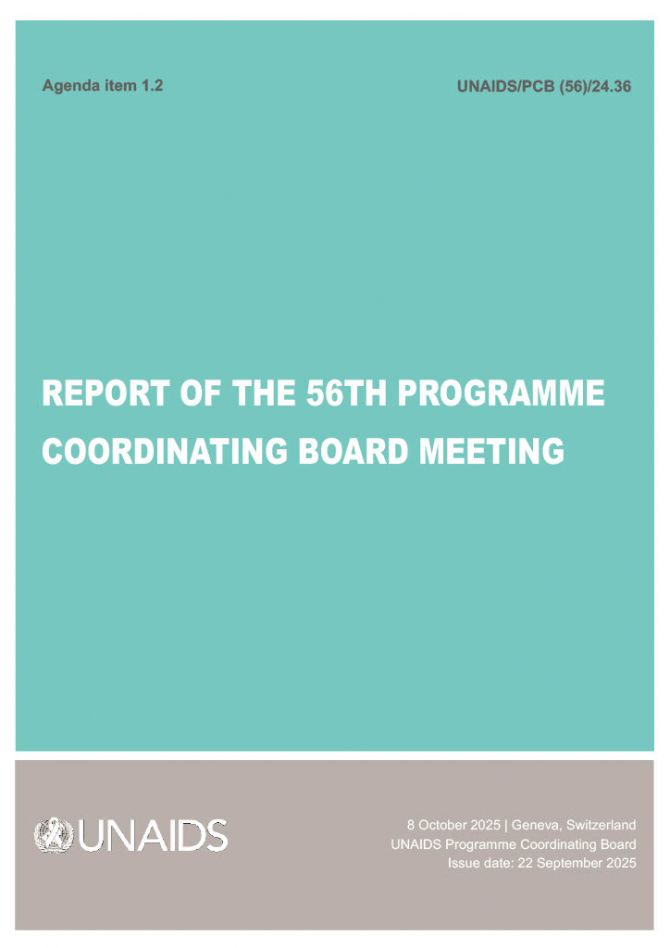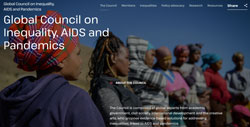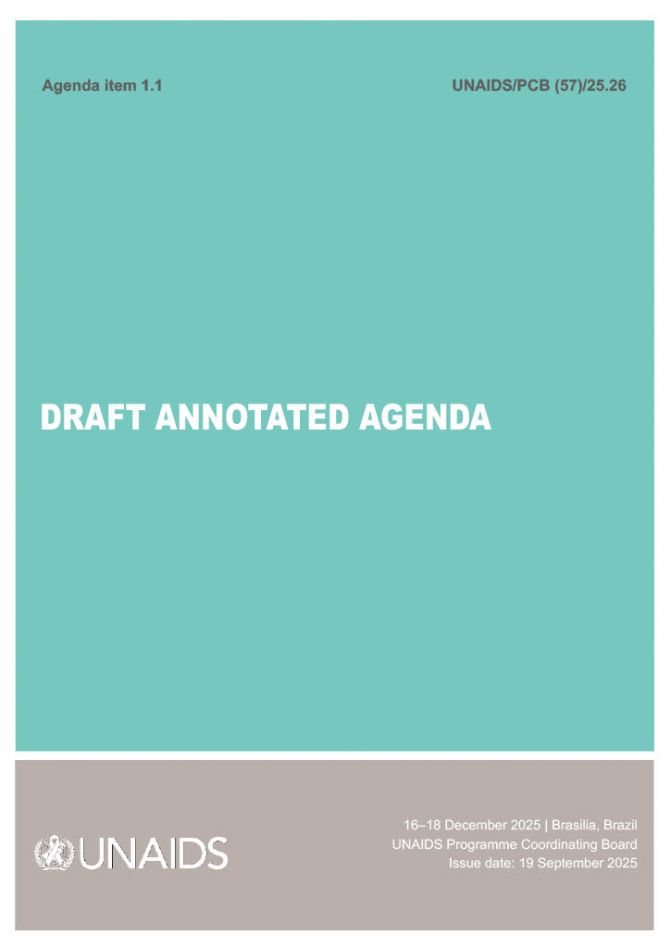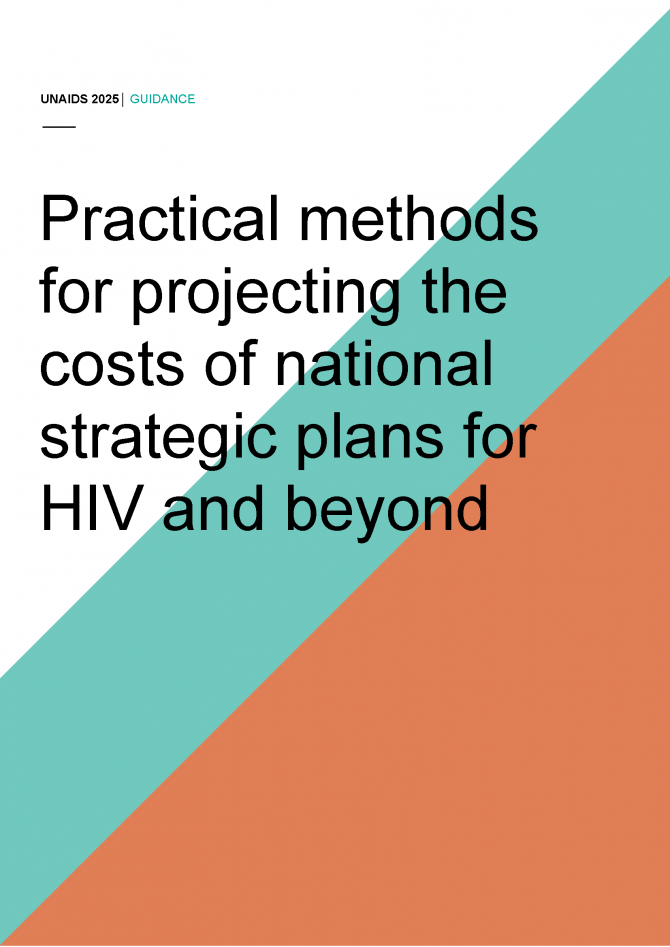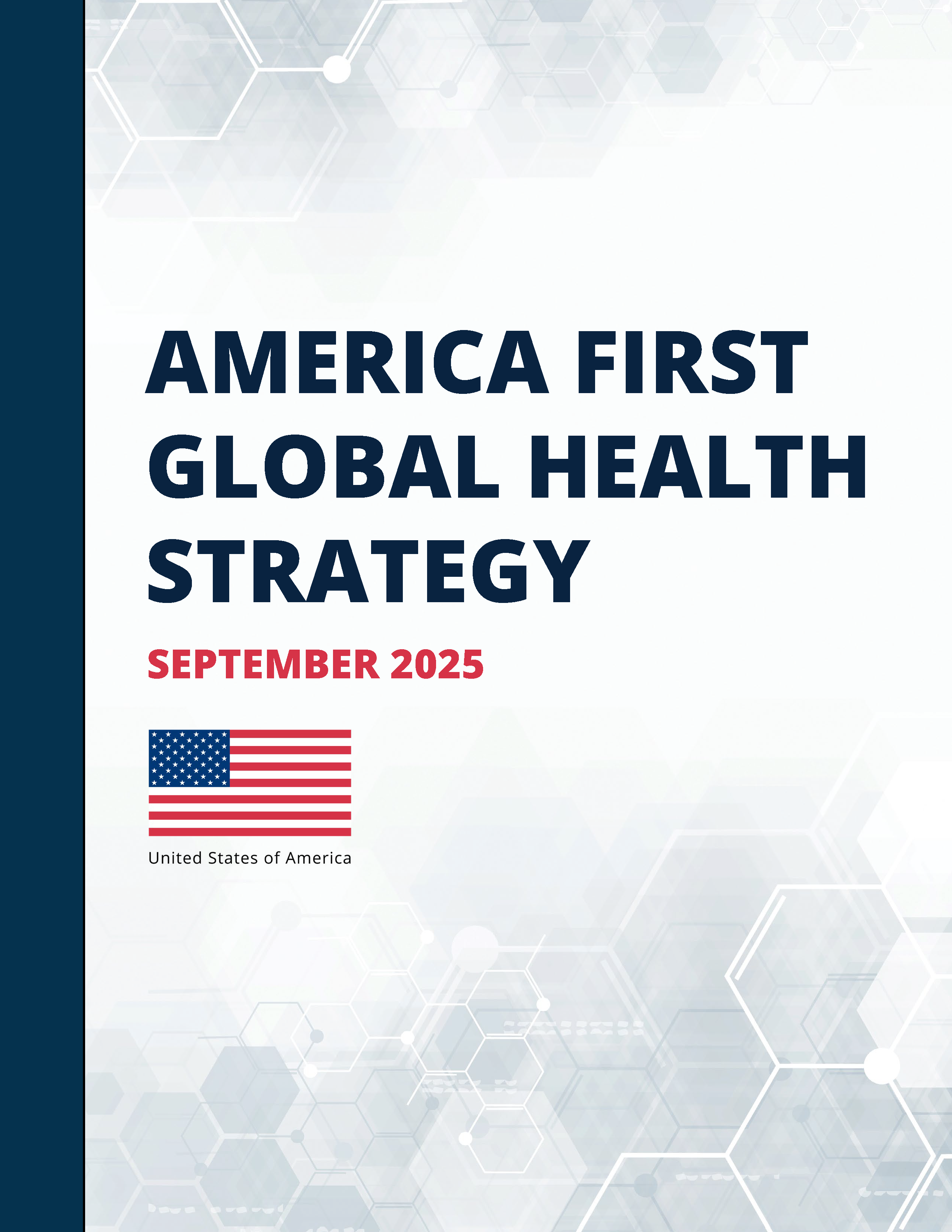
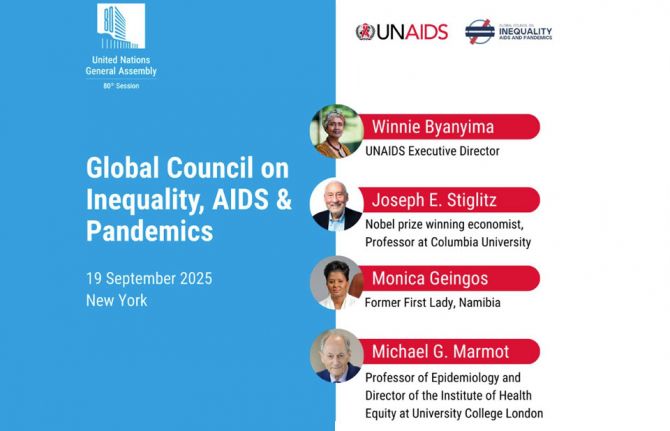
Feature Story
Ahead of UNGA, global experts investigate how inequalities are making the world more vulnerable to pandemics
22 September 2025
22 September 2025 22 September 2025In advance of the UN General Assembly High-Level Meetings, a group of experts co-chaired by Nobel prize winning economist Joe Stiglitz, former First Lady of Namibia Monica Geingos, and Director of the Institute of Health Equity Sir Michael Marmot met to review how inequality gaps within and between countries are impacting global health security. Economists, public health experts, and current and former government leaders from around the world took part in the meeting of the Global Council on Inequality, AIDS and Pandemics.
The Council convened in New York at a time of growing concern that governance, economic, and social crises are undermining the world’s capacity to respond to current and future disease outbreaks. Council members will meet with world leaders gathered this week at the UNGA.
A synthesis of the findings gathered over two years by the Council will be published in November ahead of the G20. It will cover issues including the debt crisis, social determinants, access to pandemic products, and the struggling role of community organizations in the current global environment.
“Deepening inequalities are dangerous,” said UNAIDS Executive Director Winnie Byanyima, who convened the Council. “When we set up this Council two years ago, it was with a clear vision: to collect the evidence, advocate for the policies, and secure the action needed to address the inequalities that make disease outbreaks more frequent, that accelerate the spread of disease and that intensify and prolong the impacts of pandemics.”
“When global rules leave some countries unable to protect their populations from current or future pandemics, that does not only endanger people in those countries, it endangers people in all countries,” said Joe Stiglitz.
“The need to tackle inequalities worldwide is not only a moral responsibility. It is essential for ensuring a safe and secure world. Tackling inequality, protecting everyone’s rights, is in everyone’s interests,” said Monica Geingos.
“None of the inequalities that threaten public health are immutable. They can all be tackled through proven policies and investments. Inequalities can be overcome if leaders follow the evidence,” said Michael Marmot.
Find out more about the work of the Global Council on Inequality, AIDS, and Pandemics at https://www.inequalitycouncil.org

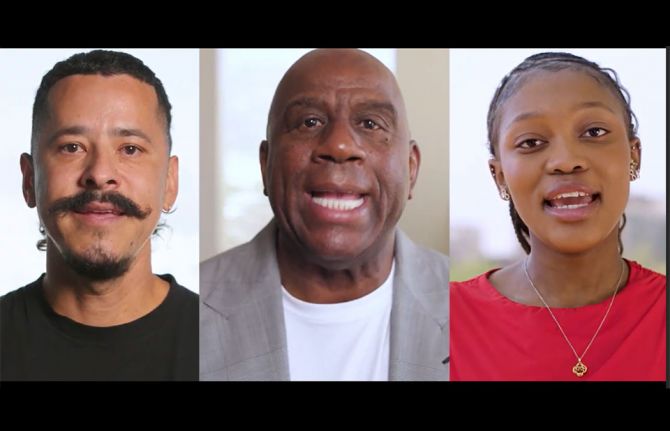
Press Release
Prince Harry, Earvin “Magic” Johnson, Charlize Theron and Thuso Mbedu unite with UNAIDS and Hollywood filmmaker to urge continued funding to end AIDS
22 September 2025 22 September 2025GENEVA, 22 September 2025—Prominent global HIV advocates are joining forces in a new short film to call on governments and donors to sustain life-saving investments to end AIDS. They warn that hard-won progress against HIV is at risk of being reversed due to sudden and drastic funding cuts by donors.
The impact of the funding cuts is already being felt in countries with high burdens of HIV, including Eswatini, Mozambique, and South Africa, which are now facing shortages of community health workers and data collectors. UNAIDS has warned that if funding is not fully restored, as many as 6 million people could become newly infected with HIV and 4 million people could die from AIDS-related deaths between 2025 and 2029.
The film will premiere at the United Nations General Assembly on 22 September, showing world leaders the devastating impact of recent funding cuts and urging them to recommit to ending AIDS by 2030.
Produced by acclaimed Hollywood writer and producer Ron Nyswaner, the film features high-profile advocates in the global fight against HIV, including Prince Harry, Duke of Sussex, Charlize Theron, Earvin “Magic” Johnson and actress Thuso Mbedu. Together they highlight the need for global solidarity and sustained support to end AIDS. It also includes Fabian Quezada, a Mexican-born HIV activist and Andiswa Cindi, a 22-year-old South African social media influencer who uses Tiktok to create awareness about HIV.
“The global HIV response has saved millions of lives for over two decades, bringing countries together in international solidarity to end the AIDS crisis,” said Mr. Nyswaner. “We hope the film captures that success while serving as a call to action for continued funding for this essential work.”
Mr Nyswaner’s deep connection to HIV was demonstrated in the 1993 film Philadelphia, that earned Tom Hanks an Oscar for his portrayal of a young lawyer fighting HIV discrimination. Mr Nyswaner continued this work in the acclaimed 2023 television series, Fellow Travelers, that brought the story of the AIDS crisis to a new generation.
Prince Harry, Duke of Sussex, who features prominently in the film, has long championed global efforts to end AIDS, supporting initiatives in countries including Botswana and Lesotho. "Right now, babies are being born with HIV due to interruptions in antiretroviral treatment for their mothers. Without urgent action to reverse these crippling funding cuts, 6 million more people will become infected with HIV while 4 million will die from AIDS-related causes within the next four years,” he said. “It is not just the at-risk communities that will be affected. We've proven that sustained investment saves lives and builds stronger communities. Abandoning this life-saving work now would be a devastating betrayal of progress for the millions who depend on these essential services."
Academy Award-winning actress and philanthropist Charlize Theron and HIV advocate and basketball legend and Chairman and Chief Executive Officer of Magic Johnson Enterprises Earvin “Magic” Johnson are not new to global HIV campaigns. Ms Theron is a longstanding leader in advocating for young people and tackling the systemic inequalities that drive HIV infections among young women and girls through founding the Charlize Theron Africa Outreach Project (CTAOP), while Mr Johnson has lived openly with HIV for many years, helping to fight the stigma against the disease.
The film also highlights recent scientific innovations which could save lives, alluding to the groundbreaking new medicine lenacapavir, which is almost 100% effective in preventing HIV with injections just twice a year which could be a game-changer in stopping new HIV infections if it is made available and affordable to all in need.
"The end of AIDS is not a distant dream—it is within our grasp, built on decades of relentless activism, advocacy, and shared commitment. From groundbreaking treatments to global solidarity, we’ve built a path to epidemic control,” said Ms Theron. “And now, as world leaders gather at the United Nations General Assembly, we have the power to finish what we’ve started. The time to end AIDS is now, and we must have the courage to see it through."
South African Hollywood actress, Thuso Mbedu, has been working with UNAIDS, encouraging world leaders to embrace human rights in the global HIV response and working with the Elton John AIDS Foundation to shine a light on critical lifesaving HIV work. “Ending AIDS requires collective action and support of humanity to ensure that no one who needs the lifesaving antiretroviral treatment in Uganda or Mozambique is left behind, she said. “World leaders must continue to invest in the global HIV response to save lives.”
The global HIV response has been transformative. For example, in sub-Saharan Africa the roll out of medicine to treat HIV, among other advances, has led to a rebound in life expectancy from 56.5 years in 2010 to 62.3 years in 2024. New HIV infections have been brought down by 40%, while AIDS-related deaths decreased by 56% since 2010.
The film highlights that no single country can end AIDS alone, and that the world must stand together in global solidarity to end AIDS.
Please click here to donate to UNAIDS.
For broadcasters: Please click here to download the film (Courtesy of UNAIDS and Ron Nyswaner)
NOTE TO EDITORS: The film was made possible through the generous contributions of Mr. Nyswaner and the film colleagues he brought on board, including cinematographer Jonathon Narducci, Otto Senault, Frits De Jong and editor Eric Martin, and Johannesburg-based agency Lobengula Advertising contributing their valuable time and resources to bring it to life. Paul Leonard Morgan kindly donated the soundtrack Touch of Sanity to the film. Prince Harry, Duke of Sussex and the Archewell Foundation and Thuso Mbedu generously gave their time while Charlize Theron and Magic “Earvin” Johnson contributed to the success of the film, both personally and through their foundations The Charlize Theron Africa Outreach Project (CTAOP) and the Magic Johnson Foundation respectively. The film is a product of collaboration that transcends different countries, including both filming and production, in South Africa, United States of America and the United Kingdom.
UNAIDS
The Joint United Nations Programme on HIV/AIDS (UNAIDS) leads and inspires the world to achieve its shared vision of zero new HIV infections, zero discrimination and zero AIDS-related deaths. UNAIDS unites the efforts of 11 UN organizations—UNHCR, UNICEF, WFP, UNDP, UNFPA, UNODC, UN Women, ILO, UNESCO, WHO and the World Bank—and works closely with global and national partners towards ending the AIDS epidemic by 2030 as part of the Sustainable Development Goals. Learn more at unaids.org and connect with us on Facebook, Twitter, Instagram and YouTube.
Documents
Intersessional: Modalities and Procedures for the 56th and 57th PCB Meetings
16 December 2025

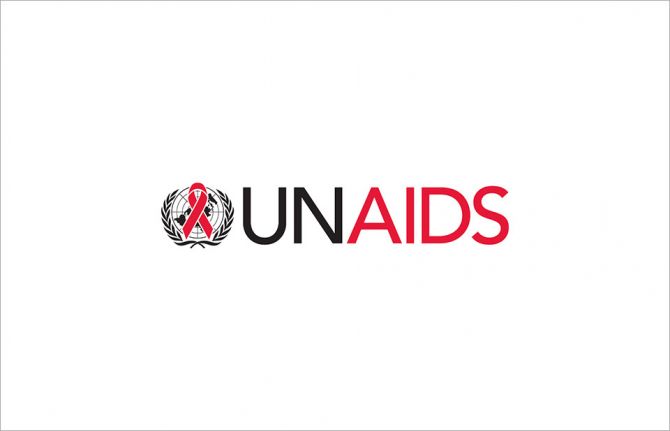
Press Release
UNAIDS is encouraged by the United States’ new strategy on global health and its strong commitment to continue to support people living with and affected by HIV
19 September 2025 19 September 2025The United States has launched a new ‘America First Global Health Strategy’ which sets out a new and tailored focus for PEPFAR, working closely with countries most affected by HIV
GENEVA, 18 September 2025—UNAIDS welcomes reaffirmed leadership from the United States in the AIDS response and its continued commitment to saving lives through the United States President's Emergency Plan For AIDS Relief (PEPFAR). In its new strategy, released today, the US is placing emphasis on global HIV targets, country partnerships and resilient and durable health systems. It stresses that national self-reliance is critical to achieving and sustaining the shared global objective of ending AIDS as a public health threat.
The new strategy highlights several of UNAIDS’ global HIV targets as key benchmarks for US foreign health assistance, including:
- Ensuring that 95% of people living with HIV are aware of their HIV status, 95% of those who know their status are receiving lifesaving HIV treatment, and 95% of those on treatment achieve viral suppression
- Achieving a 90% reduction in new HIV infections by 2030 (compared to 2010 levels)
- Achieving a 90% reduction in AIDS-related deaths by 2030 (compared to 2010 levels)
- Eliminating mother-to-child transmission of HIV in high-burden countries
This timely initiative underscores the continued support of the American people and the US Government in the historic effort to end AIDS—one of the greatest public health challenges of our time. By prioritizing results-driven targets like the UNAIDS 95-95-95 and 90% reduction in new infections by 2030, the US Government will help save millions more lives and accelerate progress to end AIDS.
UNAIDS remains firmly committed to advance and strengthen its long-standing, strategic partnership with the US Government and will continue to work hand-in-hand with PEPFAR to support countries to sustain durable, country-led HIV responses. UNAIDS will work closely together with the US Government in this historic effort to end AIDS—one that saves lives, strengthens global partnerships, makes the world safer and stronger, and brings us all closer to a world without AIDS.
UNAIDS
The Joint United Nations Programme on HIV/AIDS (UNAIDS) leads and inspires the world to achieve its shared vision of zero new HIV infections, zero discrimination and zero AIDS-related deaths. UNAIDS unites the efforts of 11 UN organizations—UNHCR, UNICEF, WFP, UNDP, UNFPA, UNODC, UN Women, ILO, UNESCO, WHO and the World Bank—and works closely with global and national partners towards ending the AIDS epidemic by 2030 as part of the Sustainable Development Goals. Learn more at unaids.org and connect with us on Facebook, Twitter, Instagram and YouTube.

